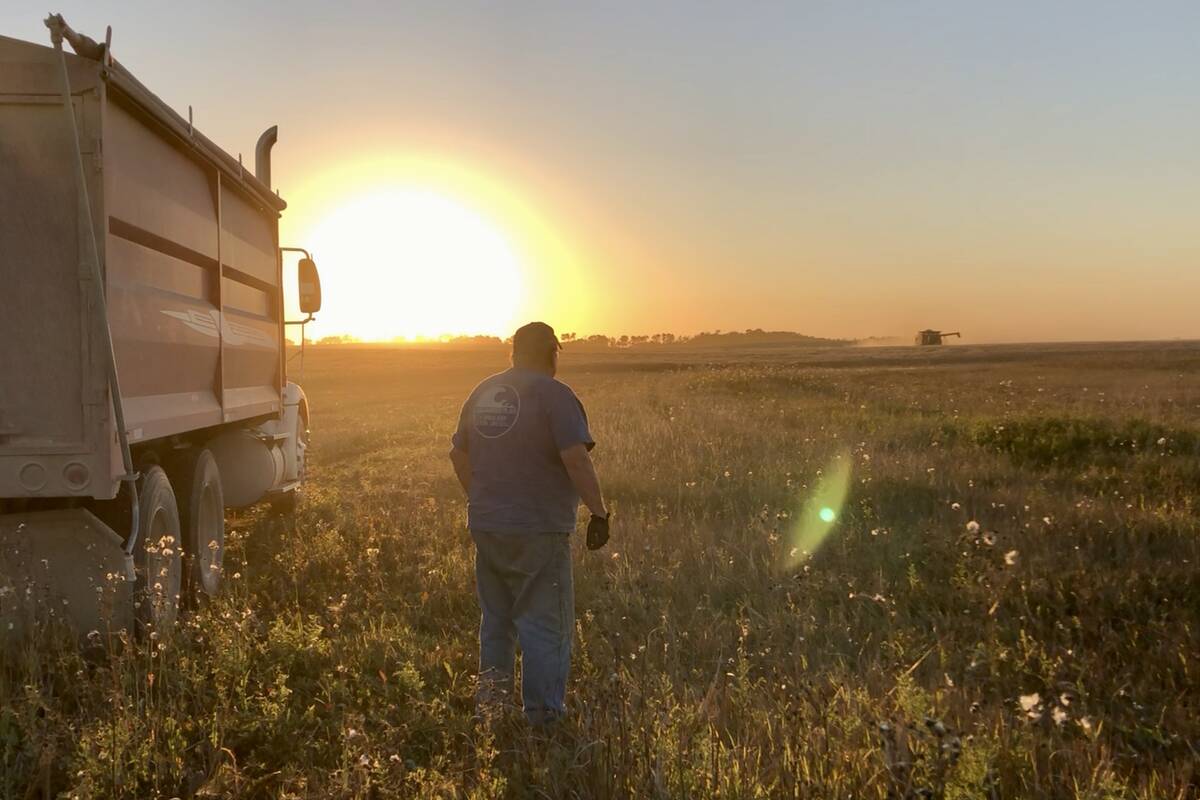The extent to which smaller communities offer support to the family and close friends of someone who has recently died is truly remarkable.
Neighbours send over complete meals for days after the death, even after the funeral, sometimes filling the freezer for weeks. Others make sure the laundry is done and the house is neat and tidy. Depending on the season of the year, neighbours do the farm chores. They feed the cattle. They spray the crop or harvest it.
The whole community is there to care for the family and everyone offers support for the people grieving the loss of someone they loved.
Read Also

VIDEO: Bittersweet harvest for this family farmhand
Bruce Burnett helps his brother harvest wheat and canola for the last time on the family farm in Manitoba where they both grew up.
The experience of a young person dying in the community is a bit different. Meals are still sent over, the freezer is filled and the chores are done. The difference is that the community is not only supporting the family in its loss. It is grieving itself. The death of a young person affects everyone in the community, and what was once support for family and close friends is now a shared sense of loss.
Often as not the death of a young person is the result of a traumatic experience. No one expected it; it catches everyone off guard. The sudden disappearance of exuberance once seen in the young person, perhaps an engaging smile, the mischief, makes the loss difficult to understand. It makes no sense and, struggle as we do, it never will.
If the community is to resolve the death of a young person, everyone needs to have the opportunity to grieve. That means each person in town has the opportunity to feel the pain, to be sad or angry, frustrated, depressed or hurt.
Grieving means people are going to be absent minded. They might go through the actions of daily routines, but their enthusiasm is not strong. They are polite, but distant.
The death of a young person is not fair. It is not fair to that person’s family. It is not fair to his or her friends. It is not fair to the school and it is certainly not fair to the community.
But through the sense of bonding that comes from sharing our grief with each other, everyone has an opportunity to resolve the loss within a stronger communal connection.
I believe that it was English poet William Wordsworth who said: “though nothing can bring back the hour of splendour in the grass, of glory in the flower, we will grieve not, rather find strength in what remains behind.”
Jacklin Andrews is a family counsellor, living and working in west-central Saskatchewan who has taught social work for two universities. Mail correspondence in care of Western Producer, Box 2500, Saskatoon, Sask., S7K 2C4 or e-mail jandrews@producer.com.
















